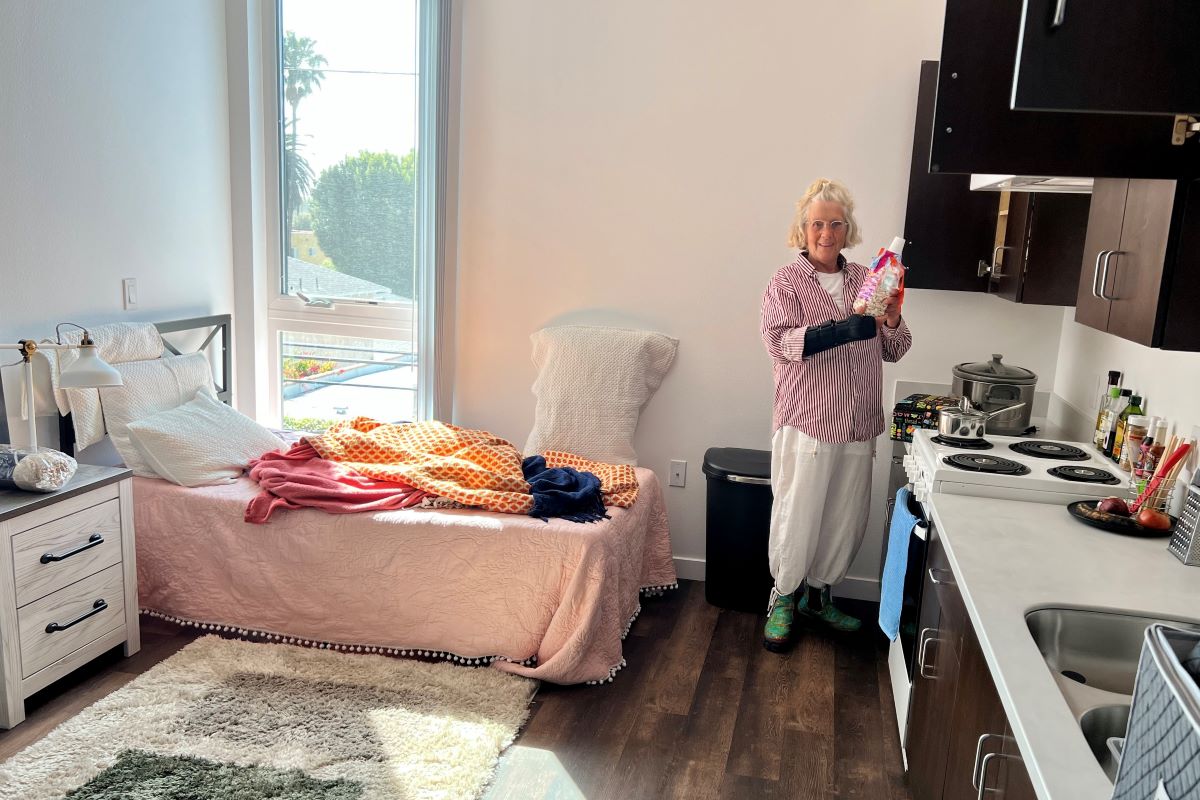As rates of homelessness increase across the US and Canada, one doctor believes he has found a prescription that could solve the issue altogether: Housing First.
Dr. Andrew Boozary, a practitioner of social medicine from Toronto, Canada, told NPR that stable housing could help alleviate the issues many people experiencing homelessness face because of social isolation or their low economic condition. For example, stable housing can increase the life expectancy of a formerly homeless person. It can also lead to better overall physical and emotional health outcomes, Boozary said.
“The air you breathe, the job you have, the income and social connections you have, are a much larger driver of health outcomes than how many primary care visits or surgeries you get access to as a patient,” Boozary added.
Boozary’s approach to ending homelessness draws from the “housing first” model developed 30 years ago by Dr. Sam Tsemberis, a psychiatry professor at UCLA and the founder of the Pathways Housing First Institute, a nonprofit in New York City.
Housing First describes a system of care in which a person experiencing homelessness is placed in stable housing before they begin receiving additional services or treatment. The idea behind Housing First is that issues such as substance abuse or psychological problems stemming from trauma can’t be adequately addressed unless a person has a place of their own to go home to.
The Housing First approach directly opposes the “disease model approach,” which emphasizes treatment as a means of attaining housing, according to the Substance Abuse and Mental Health Services Administration.
Housing First Is Cost Efficient
Research by the National Alliance to End Homelessness has found the housing first model can improve participation rates among unhoused groups and can be a cost-efficient way to help them find permanent supportive housing.
For example, the Corporation for Supportive Housing found that between 75% and 85% of people who enter supportive Housing First programs remain in the program for at least one year. That’s compared to the less than 50% retention rate of many traditional homeless service programs.
Housing First also reduces the financial burden of emergency services.
One study found that housing first models contributed to a cost savings of more than $31,000 per household in Florida. Another study also showed that housing first lowered the financial impact on a city’s shelter system by about $23,000 per person.
Boozary and his colleagues at the Gattuso Centre for Social Medicine, one of the largest research hospitals in Canada, have been studying ways to improve service outcomes for homeless patients. Housing has become one of the key guidelines for the group’s work. It’s part of a movement by hospitals in both the US and Canada to provide housing for some of their long-term unhoused patients, Kaiser Health News reported.
The group’s work also comes at a critical time.
Nationwide, housing costs have grown significantly since the start of the pandemic. At the same time, the number of people experiencing homelessness has increased by about 2,500 between 2020 and 2022, according to federal one-night count data.
While the data showed significant declines in the number of veterans experiencing homelessness, patterns of chronic homelessness and unsheltered homelessness increased, alluding to how rapidly advancing rents and home prices are two of the primary drivers of homelessness.
“The life expectancy for people surviving homelessness is half that of the general public,” Boozary told NPR. “That’s clear both in the US and Canadian data. So this is a terminal condition. And so this is a moral imperative, but also an issue where we need to be clear about the cruelty we are imposing with the status quo.”
How You Can Help
The pandemic proved that we need to rethink housing in the US. It also provided additional support and protections for vulnerable renters, especially people exiting homelessness, through supportive housing.
That’s why we need you to contact your officials and representatives. Tell them you support keeping many of the pandemic-related aid programs in place for future use. They have proven effective at keeping people housed, which is the first step to ending homelessness.











